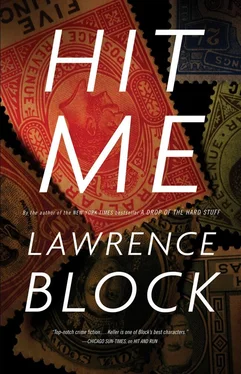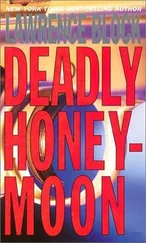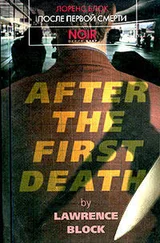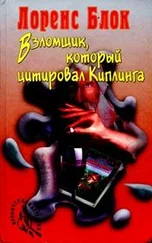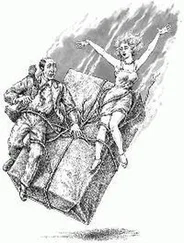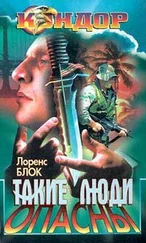He broke the trip at the same Red Roof Inn, used the same credit card. In his room he wondered if that was a good idea. But the trip was a matter of record, and one he had never attempted to conceal. Portions of it, of course, were off the record — the car rental, the visit to Caruth Boulevard — but he had no reason to hide the fact that he’d been to Dallas, and had the stamps to prove it.
He ate next door at a Bob’s Big Boy, and it seemed to him that half the men in the room had mustaches. Like his philatelic friend Michael, and like the man whose fingers he’d curled around the hilt of Portia Walmsley’s kitchen knife.
They’d found him like that, Keller had learned on page one of the Dallas Morning News . Still in a drunken stupor, still holding the knife, and still sprawled out next to the dead body of a woman.
Reading the paper, Keller had learned why the sonofabitch looked familiar. Keller had seen him before, and not in the auction room, or around the Lombardy. He hadn’t seen the man himself, not really. He’d seen the guy’s picture — online, in some of the photos that popped up when he asked Google Images for a peek at Portia. And it was entirely natural that he be photographed at her side. After all, he was her husband.
Charles Walmsley. The client.
A reconciliation, Dot had explained. Charles Walmsley had gone over to his wife’s house, perhaps in the hope of getting one last look at her before he got to see her in her coffin. And evidently the old magic was still there, and, well, one thing led to another. And somewhere along the way he remembered that he’d better call off the hit.
So he made a phone call and figured that was that. A single phone call had put the operation in motion, so wouldn’t a second phone call nip it in the bud?
Absolutely. But the person Walmsley called had to make a call of his own, and the person he called had to call Dot, and the new directive took its time working its way through the system. By the time Dot got the word, it was already too late.
Back home, Keller held his daughter high in the air. “Tummy!” she demanded, and he put his lips to her stomach and blew, making an indelicate sound. Jenny laughed with delight and insisted he do it again.
It was good to be home.
Later that evening, Keller went upstairs and settled in with his stamps. After he’d mounted Obock J1, he called Julia in and showed it to her, and she admired it extravagantly.
“It’s like when somebody shows you their new baby,” Keller said. “You have to say it’s beautiful, because what else are you going to say?”
“All babies are beautiful.”
“And all stamps, I suppose. That’s the original on the right and the reprint next to it. They look the same, don’t they?”
“I bet their mother could tell the difference,” she said.
Two days later, Keller bought a new phone and called Dot. “Take down this number,” he said, and read it off to her. She read it back and asked what was wrong with the old number. “It’s no good anymore,” he said, “because I smashed the phone and threw the pieces down a storm drain.”
“I smashed a pay phone once,” she said, “when it flat-out refused to give me my dime back. What did this phone do to piss you off?”
“I figured it would be safer to get a new phone.”
“And I figure you’re probably right. You okay, Keller? Last time we talked you were a little shaky.”
“I’m all right.”
“Because you didn’t do anything wrong.”
“Our client fell in love with his wife all over again,” he said, “and I killed her and framed him for it. If I’d known what was going on, you can bet I’d have handled it differently.”
“Keller, if you’d known, you wouldn’t have handled it at all. You’d have bought some stamps and come home.”
“Well, that’s true,” he allowed. “Obviously. But I still wish I hadn’t made the phone call.”
“To me?”
“To the cops, after I got out of there. I wanted to make sure they showed up before he could come to his senses and head for the hills.”
“Hills would be hard to find,” she said, “in that part of the country. Look, don’t worry about it. You had no way of knowing he was the client, or that he’d canceled the contract. One way to look at it, he’s a lucky man.”
“Lucky?”
“You wanted the double bonus, right? That’s why you left him with the knife in his hand.”
“So?”
“So otherwise you’d have killed them both. This way at least he’s alive.”
“What a lucky guy.”
“Well, yes and no. See, he’s consumed with guilt.”
“Because he didn’t call it off soon enough?”
“Because he got drunk and killed his wife. He doesn’t actually remember doing it, but then he can’t remember much of anything after the third drink, and what’s a man supposed to think when he comes out of a blackout with a knife in his hand and a dead woman next to him? He figures he must have done it, and he’ll plead guilty, and that’s the end of it.”
“And now he’s got to live with the guilt.”
“Keller,” she said, “everybody’s got to live with something.”
Keller, his suitcase unpacked, found himself curiously reluctant to leave his hotel room. He turned on the TV, channel surfed without finding anything that held his attention, threw himself down on the bed, picked himself up, test-drove every chair in the room, and finally told himself to get over it. He wasn’t sure what it was that he had to get over, but he wasn’t going to find it sitting in his room. Or lying down, or pacing the floor.
One explanation occurred to him in the elevator. Keller, who’d lived all his life in and around New York, had never had occasion to stay at a New York hotel before. Why would he? For years he’d had a wonderfully comfortable apartment on First Avenue in the 40s, and unless he was out of town, or had been invited to spend the night in the bed of some congenial female companion, that was where he slept.
Nowadays the only female companion in his life, congenial or otherwise, was his wife, Julia, and he lived in her house in New Orleans’s Garden District. His name in New Orleans — and, for that matter, everywhere he went — was Edwards, Nicholas Edwards. He was a partner in a construction business, doing post-Katrina residential rehabilitation, and his partner called him Nick, as did the men they worked with. Julia called him Nicholas, except in intimate moments, when she sometimes called him Keller.
But she didn’t do that so often anymore. Oh, the intimate moments were no less frequent, but she was apt to call him Nicholas then. And, he thought, why not? That was his name. Nicholas Edwards. That’s what it said on his driver’s license, issued to him by the state of Louisiana, and on his passport, issued to him by the United States of America. And that was the name on every credit card and piece of ID in his wallet, so how could you say that wasn’t who he was? And why shouldn’t his wife call him by his rightful name?
His daughter, Jenny, called him Daddy.
He realized that he missed them both, Jenny and Julia, and it struck him that this was ridiculous. They’d driven him to the airport that morning, so it had been only a matter of hours since he’d seen them, and he went longer than that without seeing them on any busy workday. Of course there’d been fewer busy workdays lately, the economy being what it was, and that in fact had a little to do with this visit to New York, but even so...
How you do go on, he told himself. And, shaking his head, walked through the lobby and out onto the street.
His hotel, the Savoyard, stood at the corner of Sixth Avenue and West 53rd Street. He took a moment to get his bearings, then headed uptown. There was a Starbucks two blocks from his hotel, and he waited at the counter while a young woman with a snake coiled around her upper arm — well, the inked representation of a snake, not an actual living reptile — made sure the barista understood exactly what she did and didn’t want in her latte. Keller couldn’t imagine caring quite that much about the composition of a cup of coffee, but neither could he imagine getting tattooed, so he let it go. When it was finally his turn, he asked for a small black coffee.
Читать дальше
